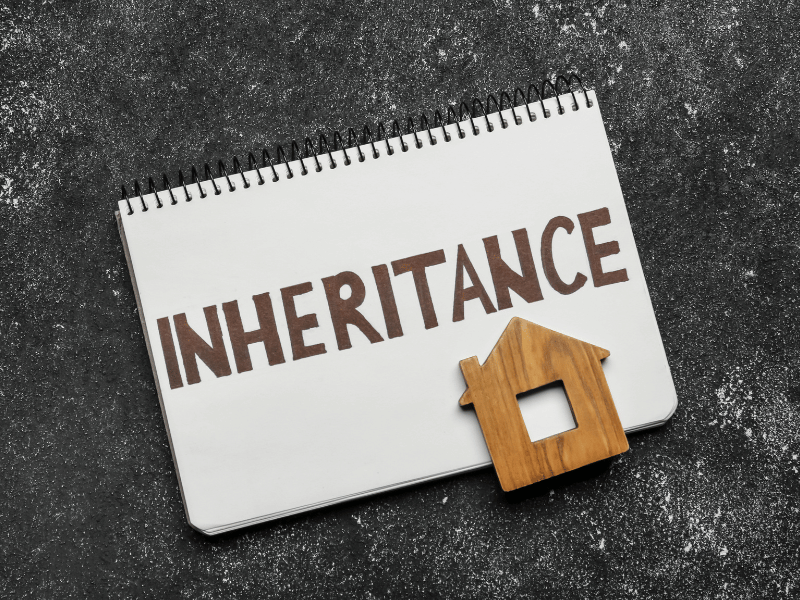Questions To Ask Before Selling An Inherited Home In New York
Before selling an inherited home in New York, there are several key questions to ask that will help ensure real estate success. First, what is the current market value of the home? Knowing the value of the house and how it compares to similar properties in the area can help determine what a reasonable asking price is.
Additionally, what are the costs associated with selling? This includes commissions, closing costs, and taxes. It’s also important to consider whether improvements should be made before placing it on the market.
Finally, it’s crucial to understand all the legal implications of selling an inherited property. This includes any potential family disputes over the sale or any other legal responsibilities associated with transferring ownership of the home.
Asking these questions can help ensure selling an inherited house in New York goes as smoothly as possible.
Understanding The Estate Tax When Selling An Inherited Home In New York

When selling an inherited house in New York, it is important to understand the estate tax that may be applicable. Depending on the size of the estate and the value of the home, this tax can become a major financial factor in the sale.
The New York State Department of Taxation and Finance has specific regulations regarding how much an estate will need to pay in taxes, which can range from 0-16%. It is also important to note that the federal government has its own laws on estate taxes that may or may not apply to your situation.
Before listing your home for sale, make sure to check with a qualified accountant or lawyer to understand all of your options and obligations when it comes to taxation. Knowing these details upfront will help you avoid any surprises during the process and ensure you get maximum profitability from your sale.
Pros And Cons Of Keeping An Inherited Property In New York
Before deciding whether to keep or sell an inherited property in New York, it is important to consider the pros and cons of each option. Keeping an inherited property in New York can be beneficial in that taxes may be lower than those of a regular rental property, and mortgage payments are not necessary.
However, the costs of upkeep and maintenance can add up over time, as well as any necessary renovations to make the home livable. Additionally, some families may find that they do not have the available time or resources needed to properly manage and maintain an inherited home.
Selling an inherited property in New York also has its advantages; profits can be used for other investments or put towards other financial goals such as debt repayment. On the other hand, there are risks associated with selling a home; market conditions may affect the sale price of a house, and homeowners must also take into account closing costs and real estate agent commissions.
Therefore, when considering whether to keep or sell an inherited house in New York, it is important to weigh all options carefully.
Tax Implications Of Selling An Inherited Home In New York

When selling an inherited home in New York, it is important to consider the tax implications. Depending on the individual circumstances, capital gains taxes may be due on any gain realized from the sale of the property.
Generally speaking, when calculating capital gains taxes, a taxpayer must subtract their cost basis (the original purchase price plus any improvements made) from the sales price of the home. In the case of an inherited home, the cost basis is typically stepped up to its fair market value as of the date of death.
This means that if your inherited home has appreciated since your relative purchased it, you could have a much lower tax burden than if they had simply sold it during their lifetime. Moreover, in some cases, sellers may qualify for an exemption from capital gains taxes, such as if they used a portion of their home as their primary residence for two out of five years prior to selling it.
It is essential to consult with an experienced real estate attorney or accountant to determine what tax implications apply and how best to navigate them in order to maximize success when selling your inherited house in New York.
How To Navigate A Real Estate Transaction For An Inherited Home In New York
Navigating a real estate transaction for an inherited home in New York can be an intimidating process, but with the right resources and knowledge, it doesn’t have to be. Before beginning the process of selling an inherited house in New York, it is important to understand certain key elements, such as the differences between probate and non-probate transfers, what type of deed needs to be issued, and how property taxes may factor into the sale.
Additionally, sellers should familiarize themselves with the current market conditions in their area and hire a real estate agent who specializes in inherited homes. Once these items are addressed properly, sellers can move forward with listing their homes on the market and getting ready for showings.
Lastly, when it comes time to close on the sale of the home, sellers need to ensure that they have all relevant documents in order as well as a clear understanding of any closing costs or fees associated with the transaction. With these tips in mind, selling an inherited house in New York can become a straightforward process that leads to real estate success.
Tips On Working With A Realtor When Selling An Inherited Property In New York

When selling an inherited property in New York, working with a realtor can be the best way to ensure real estate success. Hiring a realtor provides access to their expertise and knowledge of the local market, giving tips on how to maximize value when selling.
A good realtor will provide guidance on pricing, marketing and negotiating strategies that are tailored to the unique circumstances of an inherited property. They will also provide resources to help navigate through the legal process, such as managing transfers of title and helping with probate paperwork.
Furthermore, they can inform homeowners about tax implications associated with selling an inherited home in New York. With their help, buyers and sellers can confidently make decisions that are right for their specific situation.
Closing Costs For Selling An Inherited Home In New York
When selling an inherited home in New York, it’s important to be aware of the closing costs associated with the sale. These costs can vary significantly depending on whether the property is sold as-is or if repairs and renovations are completed prior to sale.
It is also important to note that the buyer is responsible for paying transfer taxes, title insurance fees, escrow fees, and other miscellaneous closing costs. As part of a real estate transaction in New York, both buyers and sellers typically pay their own attorney’s fees and title insurance premiums.
Property taxes are prorated between buyer and seller based on the tax assessment date. Inspections may also need to be conducted, which will add additional costs.
To ensure a successful sale of an inherited home in New York, it’s important to be aware of all potential closing costs and expenses related to the transaction.
Important Documents Needed For Closing On An Inherited Home Sale In New York

Before closing on an inherited home sale in New York, certain documents will be needed. An affidavit of heirship is one of the most important documents for this transaction.
This form identifies who the rightful heirs of a deceased individual are and all involved parties must sign it. Additionally, a certificate of discharge from probate will also be needed if the deceased had a will.
This document proves that all debts have been settled and the executor has fulfilled their obligations to creditors. Another important document is a HUD-1 settlement statement which outlines all closing costs associated with the sale and any other fees related to the transaction.
The seller should also provide proof of ownership, such as a deed or title insurance policy, to show they are legally allowed to transfer ownership. Finally, sellers may need to provide an authorization letter from the Department of Taxation and Finance if there is an unpaid balance on property taxes.
All these documents must be collected before closing on an inherited home sale in New York for real estate success.
What Is Involved With The Transfer Of Title After Selling An Inherited Property?
When it comes to transferring the title of an inherited property in New York after selling it, there are a few important steps that must be taken. For starters, it is necessary for the seller to obtain a copy of the death certificate of the previous owner.
This document must be presented to the county clerk in order for them to verify ownership, and they will also provide any other paperwork that may need to be completed as part of the transfer process. Additionally, any liens or mortgages associated with the property must be cleared before the title can be officially transferred.
In some cases, this might require obtaining special forms from banks or court documents from probate proceedings. Finally, once all of these requirements have been met, the seller must make sure that they properly fill out and sign all required legal documents and submit them to their county’s clerk’s office in order to complete the transfer process.
Common Problems During The Sale Of An Inherited Property

When inheriting a property, numerous issues can arise during the sale process. One of the most common problems is determining who owns the property since it may have been passed down through multiple generations.
Additionally, it’s important to ensure that any relevant paperwork is in order before selling, as this can prevent delays and legal complications down the road. In some cases, inherited properties may be subject to estate taxes or other fees that must be paid prior to closing.
Furthermore, if the original owner had a mortgage on the home, these obligations must also be taken into consideration when determining a final sale price. Finally, if family members are involved in the transaction, it’s essential to ensure they are all in agreement with the sale before proceeding.
With careful planning and communication between all parties, selling an inherited house in New York can be a successful endeavor.
Liability Issues To Consider When Selling An Inherited House In New York
When selling an inherited house in New York, it is important to be aware of the potential liabilities associated with the transaction.
This includes understanding inheritance and estate taxes, researching any liens or judgments that may exist on the property, making sure all parties involved are legally authorized to sell in New York, and researching whether any probate court documents must be filed.
Additionally, it is important to be aware of any real estate transfer taxes that may apply in certain counties or cities.
Understanding these liability issues can help ensure a successful sale with as few surprises as possible.
Tips On Preparing Your Home For Sale When You Are Inheriting It In Ny

When selling an inherited house in New York, it is important to prepare the home for sale. Start by ensuring the home is clean and in good condition.
Have a professional inspect the property and make any necessary repairs. If there are any items left behind, carefully consider whether it would be beneficial to keep some or donate the rest.
Consider updating outdated features such as cabinetry, appliances, flooring, or paint colors to increase curb appeal. If needed, hire a professional cleaning service to ensure that the home shows well.
Additionally, declutter and stage the home with neutral furnishings to highlight the best features of your property. Finally, take high-quality photographs of your home for marketing purposes and create a detailed description of what makes your house unique.
Following these tips on preparing your inherited house for sale will help you achieve real estate success in New York.
Exploring Financing Options For Renovations To An Inherited Property In Ny
When it comes to selling an inherited house in New York, financing options for renovations can be a major factor in achieving real estate success. From home improvement loans and construction loans to cash-out refinances and HELOCs (home equity lines of credit), there are plenty of financial resources available for making changes to an inherited property.
Home improvement loans can provide the funds necessary for improving safety, functionality, or aesthetic appeal of a home, while cash-out refinances allow homeowners to access the equity in their home if they’ve built up enough value over time. Furthermore, HELOCs allow homeowners to finance large remodeling projects with no out-of-pocket expenses, although they typically come with variable interest rates.
Regardless of which financing option is chosen, exploring all available choices is important when considering a renovation project on an inherited house in New York.
Strategies For Dealing With Unwanted Items Left Behind After The Sale Of An Inherit Property In Ny

When selling an inherited home in New York, it is important to consider the items left behind by the previous owner and how to deal with them. If you are inheriting a property with unwanted furniture or other belongings, several strategies should be considered.
Firstly, you can donate the items to a local charity or organization in need. This is not only a great way to help those in need but also may provide potential tax benefits for you.
Another option is to organize an estate sale where the items can be sold directly from the house. This can help maximize profits from the sale of any furniture, artwork, or other items left behind by the previous owners.
Additionally, if there are any hazardous materials, such as paint or chemicals, these should be properly disposed of according to state law. Finally, many cities have services that will come and remove unwanted items for a small fee, so this may be another viable option depending on your circumstances.
How To Handle Unexpected Delays During The Process Of Selling An Inherited House In Ny
Selling an inherited house in New York can be a complicated and time-consuming process. It is important to remain flexible during the process and be prepared for unexpected delays.
Potential buyers may experience difficulties with financing, inspections, appraisals, and other paperwork. It is wise to consult a real estate professional who can provide guidance on how to handle issues that arise in this type of transaction.
Additionally, since it is not uncommon for the sale of an inherited home to take some time, the seller should plan ahead and budget for any repairs or renovations that need to be completed before listing the property for sale. Furthermore, making sure all documents are properly filed when closing on the inherited house will help ensure a smooth and successful sale.
Managing Stress While Selling And Transitioning From An Inherit Property In Ny

When selling an inherited home in New York, the process can be stressful and overwhelming. It is important to manage these emotions while transitioning from the property.
One way to do so is by understanding what you are facing as well as knowing your rights. Researching the local real estate market, taking advantage of resources such as estate attorneys and tax advisors, and having a plan for navigating the process is essential when selling an inherited property in NY.
Taking time for yourself can help alleviate the stress caused by selling an inherited house in New York. Planning ahead of time, breaking down tasks into smaller pieces, delegating tasks whenever possible, and allowing yourself enough time to complete each task can make the process easier to handle.
Additionally, seeking support from others and talking openly about your feelings can help with managing stress while selling and transitioning from an inherited property in NY.
Comparing Offers On Your Beneficial Interests When Selling An Heirloom Property In Ny
When selling an heirloom property in New York, it’s important to compare offers on your beneficial interests. There are a few factors to consider when making this decision.
Firstly, it’s important to take into account the market value of the property and what similar properties in the area have recently sold for. Additionally, you should look at the type of offer you’re receiving; cash offers are generally easier and quicker to close but may be lower than an offer that includes financing or other terms.
It’s also helpful to check out the track record of any potential buyers, as well as their ability to follow through with their offer. Finally, always read any contract carefully before signing and make sure you understand all of its terms before agreeing to them.
Selling an inherited house in New York can be a complex process, but by taking these steps into consideration, you’ll be able to make a more informed decision about who gets your beneficial interests when selling your family’s heirloom property.
Obtaining Professional Help With Legal Matters Surrounding The Sale Of A Family Member’s Estate Assets In Ny.

When selling an inherited house in New York, obtaining professional help with legal matters surrounding the sale of a family member’s estate assets is essential. Working alongside a reputable real estate lawyer can ensure the sale is completed according to all applicable laws and regulations while protecting the seller’s rights and interests throughout the entire process.
Such lawyers will be able to provide advice on tax obligations related to the inheritance, as well as prepare all necessary documents required for the sale. It is important to remember that because of NY state laws, any potential buyers must be made aware of any liens associated with the property before it can be sold.
A knowledgeable attorney can help review all documents associated with the inherited house and confirm that everything is in proper order before closing on a deal. In addition, such an individual can also assist with negotiating any contracts so that both parties are satisfied after finalizing a sale agreement.
Extra Resources To Help New York Sellers
| Closing Costs When Selling A House In New York | Taxes When Selling A House In New York |
| When Is It Too Late To Stop Foreclosure In NY | Selling A House With Mold In New York |
| Squatters Rights In New York | Selling A House With Fire Damage |
| Selling A House With Code Violations | Sell A House In Probate New York |
| Sell A House During Divorce New York | Can You Sell A House In Foreclosure New York |
| Selling A House When Relocating | Selling Inherited Property In NY |
| Sell Commercial Property In New York | Sell Land In New York |
| How To Do A Quitclaim Deed In New York | Tenant Damage To Property In [New York |
Sell Your New York House Fast For Cash Today
We buy houses in ANY CONDITION! We pay CASH and there are no commissions or fees. Start below by giving us a bit of information about your property or call (631) 336-9166

